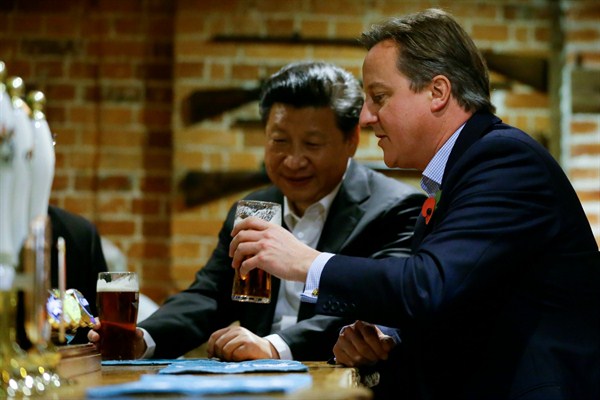When he was British prime minister, David Cameron promised that his country would become China’s “best partner” in the West. His recent decision to accept a leadership role in a new joint Sino-British investment fund—part of China’s ambitious Belt and Road development initiative, no less—shows that, even after his retirement from frontline politics, Cameron is still dedicated to making good on that commitment.
Last month, as part of his new job, he had a personal meeting with Chinese President Xi Jinping in Beijing, where he expressed hope for a new “golden era” of U.K.-China relations, echoing what he said when he was still working out of Downing Street.
Cameron’s enthusiasm for engaging China is somewhat anomalous given the current moment, when much of the so-called Anglosphere is beset by suspicions of Beijing. In New Zealand and Australia, for example, a series of political scandals have raised questions about the extent of Chinese influence, even interference, in their domestic politics, while the United States under President Donald Trump has been deliberately hawkish on China over both security issues and the economy. Even some Canadians are sounding the alarm about expanding Chinese reach.

